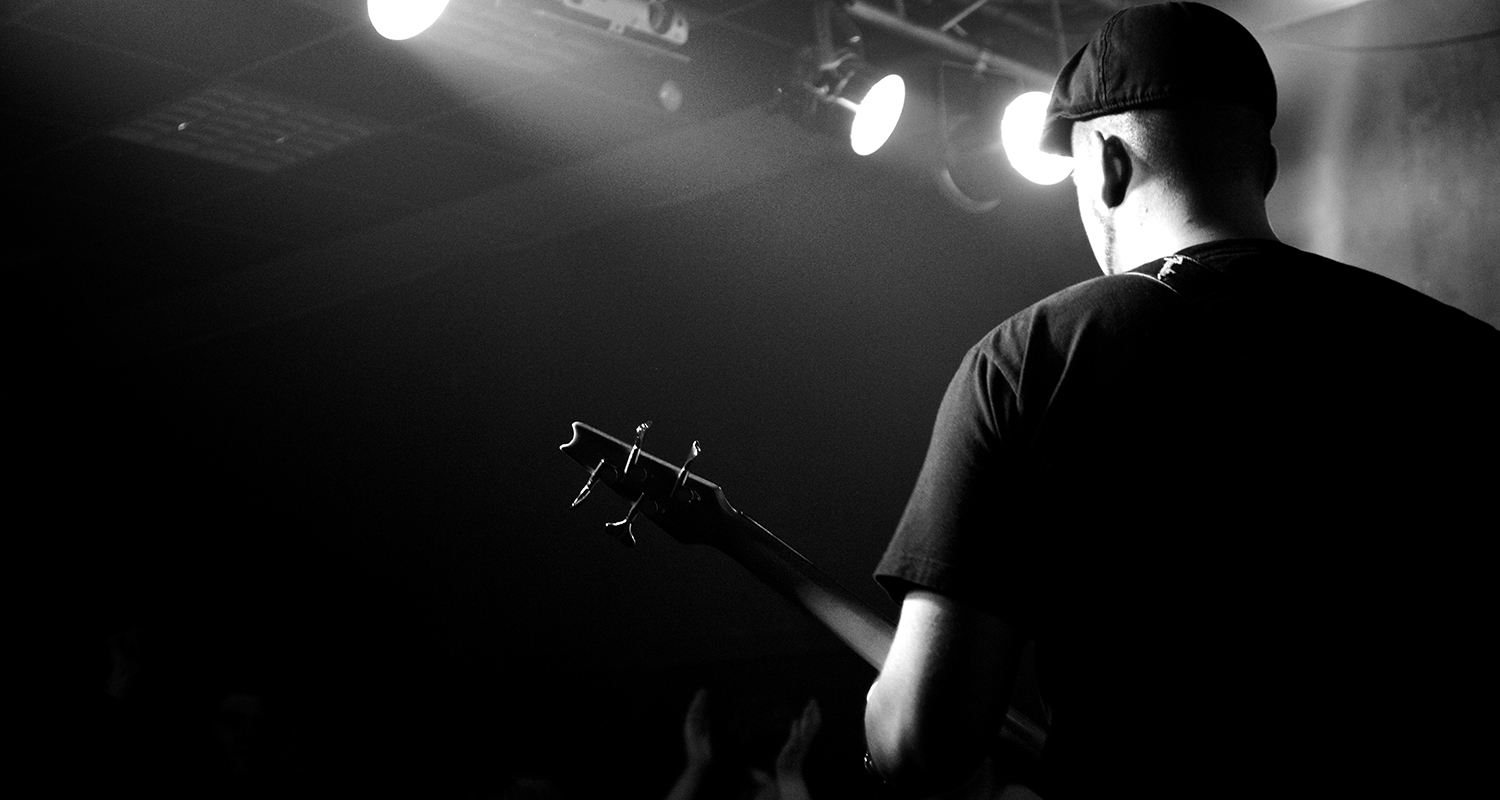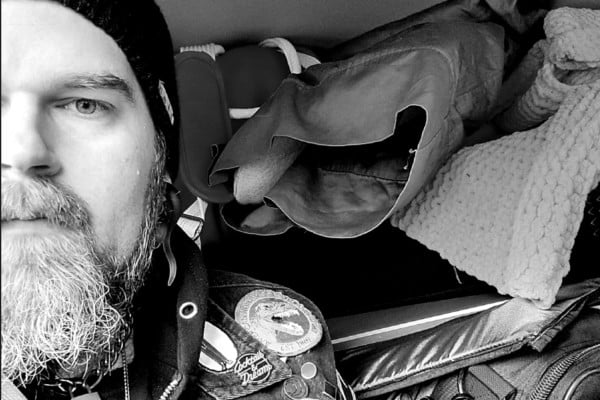What Should I Play At Soundcheck?

Q: What should I play at soundcheck? I always feel like I should be impressive or something when the sound tech says “okay, let’s hear the bass,” But maybe just pulsing on the open E string is enough? What’s your soundcheck agenda?
A: This is the perfect opportunity for me to: a) make a suggestion as to the best use of your soundcheck time, and b) address some soundcheck related pet peeves (in a kind and diplomatic way, of course).
First, let me address your specific question: When getting my initial line level and initial house EQ tweak (i.e.: when it’s just me checking, before the band checks as a whole), I have a few priorities:
- Hit a few dynamic levels.
- Hit the range of the instrument (as it pertains to whatever gig I’m on. If you’re rocking the first 5 frets all night, don’t worry about hitting a bunch of chords and melodic riffs during your soundcheck).
- Address any pedals or sonic changes that’ll happen during the show.
I often start by playing at my typical, bass playing level, maybe starting with a groove from one of the songs. I’ll give it a few bars and then might move up or down the fretboard, playing multiple octaves, ranging from loud to soft. If it’s a gig where it would be appropriate, I would likely play a few chords up high, a few melodic statements, and then back down to bass. I don’t go for very long before I stop and ask the sound person is they’d like anything more of any particular range or dynamic. Then I’ll mention any pedals or sonic changes that may happen and give a demonstration if it’s warranted. I’ll also often ask how my stage volume is in the front-of-house. When the stage gets too loud, it can be a nightmare for the sound person.
Basically, I try to keep it concise, give them what they need to dial me in for front-of-house, and make sure that I musically address the range of what I will be doing on stage that night. I don’t worry about playing amazing things or even sounding all that good. I’m listening to what I sound like on stage, making sure that I’m happy and will be able to feel good about it, and then focusing on whatever the technician needs.
Now, as to the rest of it…
In order to make your soundcheck as productive and as short as possible collectively, it’s important that everyone set up, get their sounds, tune, do what needs to be done, and then allow the sound person to run the show for a while, so everyone gets what they need.
Often, this entails:
- Going around the stage, one by one, while they get everybody’s level, a bit of eq for the house, and…
- Next person.
- One by one… with everyone else remaining quiet and attentive.
- Then, you’ll likely get asked what everyone needs in their wedge.
- Again, one by one… If they ask, “who wants kick?”, raise your hand (I point to the sky until it’s at a good level and then make a fist and drop my arm if it’s good or point down if it needs to come back down. Around the horn, until everyone has a rough mix. One by one.
Then, it’s time to play as a group to fine tune your mixes.
It’s a good idea to make sure you hit something loud, soft, and anything that may have extra vocals, horns, etc.. touch on all of the dynamic ranges. Give the sound person the concise arc of the show, dynamically. Don’t play entire tunes, don’t jam. Just hit a section of a song for a minute or less, and then stop and, one by one, address your mix needs.
A good sound person knows how to dial in the room and will often require that they hear a bit of each instrument by themselves to give themselves a good starting place (until they hear the band as a whole). That means that, when the guitarist starts sound checking with a groove, and everybody decides to join in because it’ll be fun, the sound person is quietly (or not) cursing you all and unable to dial in the guitar, which is what they’re trying to hear by itself.
Don’t join in until you hear somebody say, “okay, let’s hear everything together,” or “try a tune and see where we’re at”. It’s not a basement jam session, it’s a soundcheck, and people are working. Keep in mind that they are working to make sure that you sound good at show time. It’s counter-productive to make their job harder.
While you are the “talent” for the evening, the soundcheck is the sound person’s show. Let them do their jobs. It’ll make the band sound better when it comes time to hit the stage, it’ll ensure that everybody has what they need in their in-ears or wedges, and it’ll help to insure a good working relationship with the person responsible for how good you sound in the audience (not to mention helping to assure a good working relationship with the person who you hope is paying attention when you need something sound related on stage during the show). It’s good to keep them happy, enjoying working with you and wanting to make your life better on stage because they appreciate how you’ve made their lives better in the house.
I put it up there with not angering the chef at a restaurant.
I play with a lot of bands that operate on a lot of different levels (dive bars, international jazz clubs, stadiums, house concerts… you name it). People would likely be amazed at the difference in efficiency, over-all happiness levels both on and off stage, and sound quality that is the direct by-product of a professional level soundcheck vs those musicians who noodle around on stage the entire time.
You’d be amazed at the number of times I’ve seen one musician, talking to the sound man about what they need, only to get interrupted by a drummer or guitarist (ok, or bassist… let’s be fair) deciding that it was time to experiment with that new lick they’ve been working on, or rehearse a section of a song or just play because they’re bored. It’s astounding to me. To me, it’s about as rude as someone having an engaging conversation with someone and somebody else just walking up and shouting at them, “Where’s the crapper? I gotta go!”, mid-sentence. That level of unawareness confounds.
I hope I don’t sound like I’m venting (maybe a little) but I’ve seen far too many musicians either:
- Drive everybody else in the band crazy because they are oblivious to how rude/inappropriate they are during sound checks.
- Completely piss off and alienate the sound technicians and stagehands because they have no idea how to facilitate anything but their own needs and immediate desires.
- Spend agonizing hour after hour in sound checks, because everyone is constantly delaying the process by playing when they shouldn’t or not paying attention when they should.
Sound checks are necessary, and there is no reason that they should be frustrating or difficult, barring any technical issues with gear. If the sound technician is happening and the band checks like the pros they aspire to be, it shouldn’t take any real time at all. I’ve had quicker sound-checks with 18 cellos, horn section, and rhythm section, than I have with a 4 piece rock band. Barring gear issues, there’s no excuse other than a lack of professionalism and thoughtlessness.
Regardless of your genre (or gender identification), don’t be “that guy”!
I hope that I answered your actual question. Apologies for getting side-tracked on sound checks as a whole.
Have a question for Damian Erskine? Send it to [email protected]. Check out Damian’s instructional books, Right Hand Drive and The Improviser’s Path.



